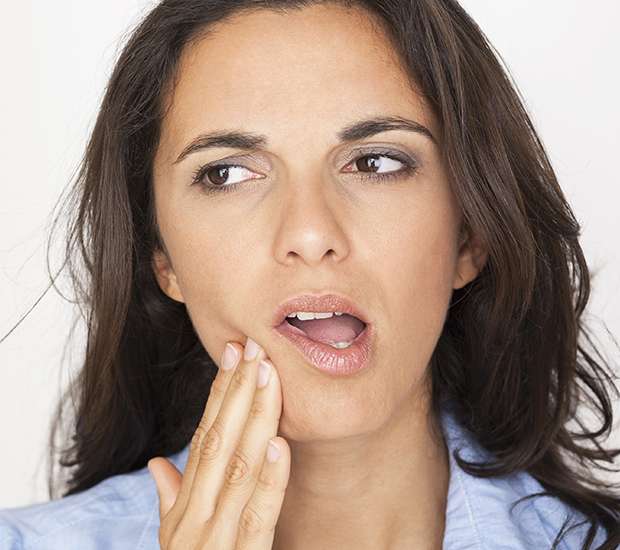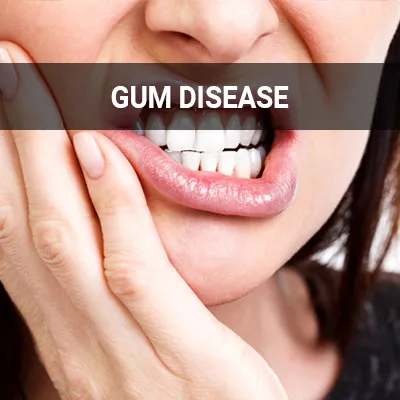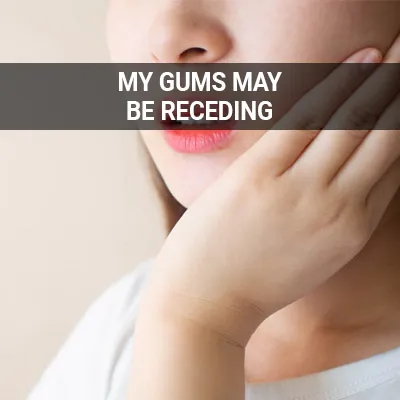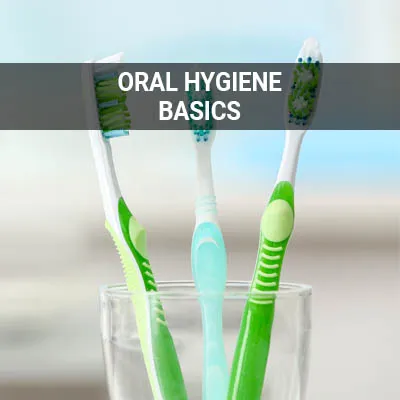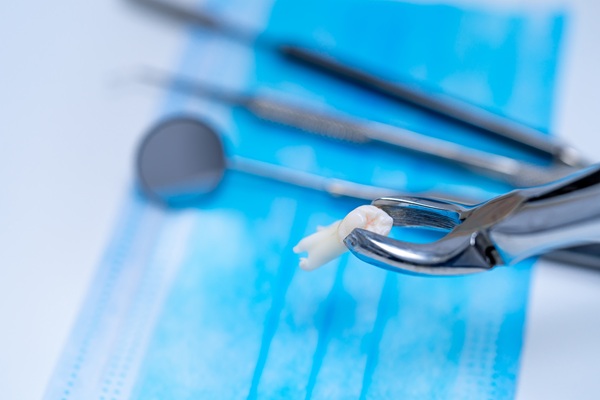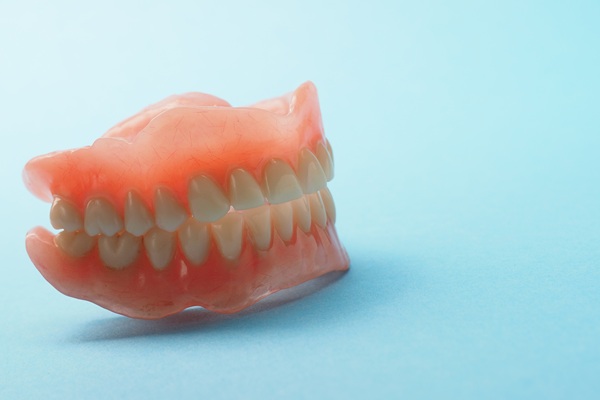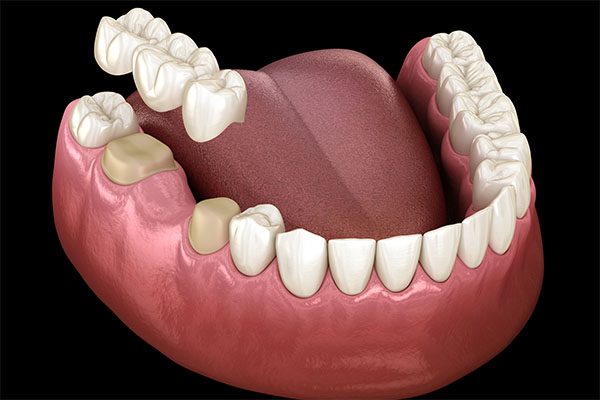Why Are My Gums Bleeding Des Plaines, IL
Oral bleeding can be an early warning sign for many dental problems. Dentists can provide the needed treatment to resolve most conditions that cause bleeding gums. Without care, however, the condition may worsen. Gum bleeding or recession can eventually lead to tooth loss.
Gum treatment is available at Apple Family Dental in Des Plaines and the surrounding area. Our team performs procedures for a wide range of gum disorders. We provide gum restoration and treatment for infection. Call us at (847) 553-4848 to learn more.
Diseases That Cause Gums to Bleed
Most forms of gum disease are caused by plaque. This sticky substance traps food and bacteria against the gum line. Over time, bacteria attack the gums, triggering inflammation and sensitivity. Without treatment, the problem can worsen. The gums may bleed while eating, brushing, or flossing. Gum problems have also been linked to heart disease and stroke.
Often, smoking and poor oral hygiene are to blame for gum disease. But some patients may be prone to gum disease even if they brush and floss daily. Pregnant women are at a high risk of gum disease, and so are people with diabetes. Patients who wear dentures are more likely to develop gum disease too.
In rare cases, bleeding gums can be a sign of a severe condition like leukemia. Patients who notice bleeding gums should seek dental care right away. Our team can determine the source of the problem. If further tests are required, we help patients make the necessary arrangements.
“Often, smoking and poor oral hygiene are to blame for gum disease.”
Oral Bleeding Due to Injury
Sometimes, patients develop bleeding gums after an accident or injury. Patients might also experience gum bleeding after they eat sharp or hard foods. A qualified dentist should investigate any oral bleeding.
Patients should seek care right away after a blow to the face or head. Some accidents may seem minor, but they can cause significant dental damage. A dentist can provide an exam and X-ray. During this checkup, the dentist looks for problems below the gumline. If the patient has any signs of a gum injury, the dentist provides care.
“Patients should seek care right away after a blow to the face or head.”
Factors That Cause Gum Bleeding
Smoking, vaping, and chewing tobacco all increase one's risk for gum disease. The substances dry out the mouth and reduce blood flow to the gums. Over time, some patients may develop gum problems. Patients who notice gums bleeding should quit all tobacco products at once.
A poor diet can also lead to vitamin deficiencies. If the body does not receive enough of certain nutrients, patients may develop gum recession. Blood tests can determine whether a patient suffers from nutritional deficiencies. If a nutritional deficiency is to blame, supplements may resolve the problem.
Some prescription medications are associated with oral bleeding, too. Blood thinners, including aspirin, can increase the risk of bleeding. Patients who experience oral bleeding while taking these drugs need immediate care. Contact your healthcare provider for further advice.
“Smoking, vaping, and chewing tobacco all increase one’s risk for gum disease.”
Check out what others are saying about our dental services on Yelp: Why Are My Gums Bleeding in Des Plaines, IL
Treating Bleeding Gums
Proper oral hygiene reduces the risk of gum disease. Patients can protect their gums by:
- Brushing twice daily
- Flossing twice daily
- Avoiding sugary, sticky foods
- Rinsing the mouth after each meal
- Sipping plain water throughout the day
Regular dental care helps, as well. Patients should schedule checkups and cleanings at least twice a year. During each biannual cleaning, the dental team removes plaque and tartar. These sticky substances can trap bacteria at the gumline. As a result, patients who skip dental cleanings may develop plaque buildup. This condition increases the patient's lifetime risk of gum disease.
In some cases, patients may need further care for their bleeding gums. Many in-office dental procedures eliminate infection and restore healthy gum tissue. Our dental team can help patients choose the right procedure.
“Patients who skip dental cleanings may develop plaque buildup.”
Questions Answered on This Page
Q. What lifestyle factors can trigger gum bleeding?
Q. What happens after my office visit for gum bleeding?
Q. What should I do if I experience bleeding gums after an injury?
Q. How are bleeding gums treated?
People Also Ask
Q. Why would someone get gum reshaping?
Q. Am I at high risk for developing oral cancer?
Q. What are some common signs of receding gums?
Post-Visit Care
Good dental hygiene can reduce gum bleeding. During each office visit, our team demonstrates brushing and flossing techniques. We can also provide advice on mouse washes and rises, which may reduce bleeding and gum disease. Individual treatment plans may vary. Our team will let each patient know how to care for their gums — even once they return home.
“Good dental hygiene can reduce gum bleeding.”
Frequently Asked Questions
Q. What causes bleeding gums?
A. Bleeding gums are usually a sign of gingivitis. This common condition causes inflammation and tenderness along the gumline. Patients with gingivitis need prompt treatment. Untreated gingivitis may put patients at risk for tooth or jawbone loss.
Q. Are bleeding gums a sign of cancer?
A. Gum bleeding is often a sign of infection or poor oral hygiene. Sometimes, however, bleeding gums can be a symptom of leukemia. Patients with bleeding gums should always seek an immediate evaluation. A dentist can determine the cause of the patient's symptoms and provide treatment.
Q. Does smoking cause bleeding gums?
A. People who smoke are at high risk for gum disease, tooth loss, and other dental problems. Many smokers also develop bleeding gums. Contrary to popular belief, e-cigarettes are not a safer option. E-cigs can also damage the teeth and gums. Patients who smoke may want to consider a smoking cessation program.
Q. Can pregnancy cause bleeding gums?
A. Many people develop bleeding gums during pregnancy. These symptoms are usually temporary and rarely cause serious health problems. Regardless, it is important to seek treatment right away. A dentist can stop the bleeding and treat any underlying gum disorders.
Q. How are bleeding gums treated?
A. The dentist may begin with a thorough cleaning. First, they remove any plaque or tartar. Next, they provide an antiseptic rinse. The dentist may also provide take-home products to help the patient's gums heal. Sometimes, the patient may need a scaling and planing procedure or other in-office treatments. Our dental team can provide more information about these procedures.
Periodontic Terminology
Call Us Today
If you notice bleeding gums, notify your dentist immediately. Bleeding can be a sign of gum disease. Without treatment, your symptoms may worsen. Receding gums can lead to tooth loss and other dental problems.
Do not let gum disease destroy your oral health. Let Apple Family Dental in Des Plaines provide the care you need. Call us at 847-553-4848 to schedule an appointment with a qualified dentist.
Helpful Related Links
- American Dental Association (ADA). Glossary of Dental Clinical Terms. 2024
- American Academy of Cosmetic Dentistry® (AACD). Home Page. 2024
- WebMD. WebMD’s Oral Care Guide. 2024
About our business and website security
- Apple Family Dental was established in 1994.
- We accept the following payment methods: American Express, Cash, Check, Discover, MasterCard, and Visa
- We serve patients from the following counties: Cook County and Lake County
- We serve patients from the following cities: Des Plaines, Niles, Glenview, Morton Grove, Park Ridge, Mount Prospect, Northbrook, Wheeling, Skokie, Arlington Heights, Buffalo Grove, Schaumburg, and Prospect Heights
- National Provider Identifier Database (1558090167). View NPI Registry Information
- Norton Safe Web. View Details
- Trend Micro Site Safety Center. View Details
Back to top of Why Are My Gums Bleeding
